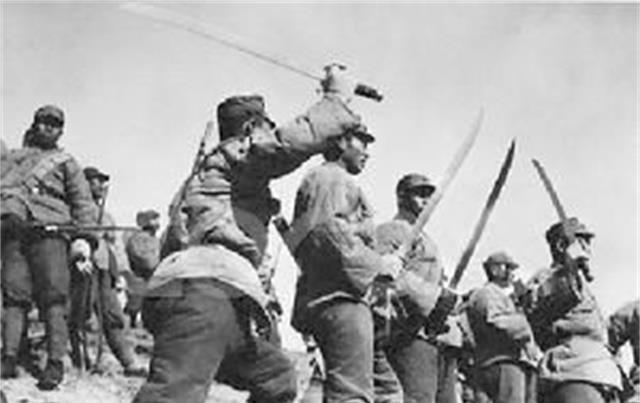The Chinese army, which made the Japanese army feel frightened, from the division commander to the soldiers, were all anti-Japanese bloody boys

Before the July 7 Incident, the Chinese and Japanese armies were in a hair-trigger situation in the Pingjin area, with the Japanese army stationing as many as 6,000 troops in the Pingjin area, plus more than 15,000 puppet troops of the so-called "Jidong Defense Communist Autonomous Government", with a total strength of more than 20,000 troops.
The Chinese army stationed in the Pingjin area is the 29th Army, with a total strength of 100,000 people.
Speaking of the Twenty-ninth Army, many people will think of the Great Wall Resistance War and the big knife team that "slashed at the head of the devil".
The Twenty-ninth Army was the team of the Northwest Army, and after the Battle of the Central Plains, Zhang Xueliang incorporated the remnants of Feng Yuxiang's Northwest Army and reorganized them.
The Northwest Army is known for its bravery and good fighting, and in the Great Wall War of Resistance, the Northwest Army fought hard with the Japanese army for more than a month, which once made the Japanese army suffer enough.
In particular, a division of the Twenty-ninth Army made the Japanese army feel frightened, that is, the Thirty-seventh Division, in the eyes of the Japanese, the Thirty-seventh Division, from the division commander Feng Zhi'an to every officer and soldier is a die-hard anti-Japanese element.
During the Great Wall War, that is, the officers and men of the Thirty-seventh Division entered the Japanese military camp in the middle of the night with a large knife and beheaded people, which is still a nightmare for Japanese soldiers.
In order to cope with the increasingly tense situation, Commander Song Zheyuan deliberately arranged for the Thirty-seventh Division to garrison Beiping.
After the 37th Division was stationed, the closest locations to the chinese and Japanese garrisons and activity areas were Fengtai Station and Wanping City.
In the face of the Japanese army that deliberately provoked the war, the Thirty-seventh Division had already made preparations, and every soldier was full of strength, as long as the Japanese army dared to cross the thunder pool one step, the officers and men of the Thirty-seventh Division would make the Japanese army suffer enough.
In the most sensitive area of Wanping City and Lugou Bridge, the Japanese army actually began to exercise under the eyes of Chinese soldiers, exaggerated the posture of charging at the Chinese garrison, and even rushed into the police line of Chinese soldiers at one point.
Although the Chinese army could not prohibit the Japanese army from conducting military exercises in Tunnei, it was possible to prevent them from passing through the Wanping City Gate, and the result was that the Japanese army intended to pass once, and the soldiers of the Thirty-seventh Division blocked them once.
On July 6, 1937, the Japanese, who had been looking at Chinese soldiers for a whole day in the heavy rain outside the gates of Wanping City, finally withdrew.
The deliberate Japanese army, on the next day, that is, on July 7, bypassed the city gate of Wanping City and ran directly north of the Lugou Bridge.
The war of aggression of the Japanese army began.